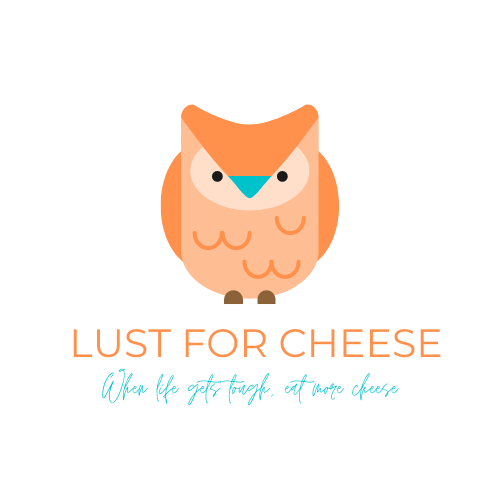How to balance cheese and lactose intolerance

I love cheese and have had an ongoing affair with it, but now it doesn’t love me back. Here’s what to do if you are cursed by a love for cheese and lactose intolerance at the same time.
I was born and raised in Wisconsin. My grandfather was a dairy farmer, as were a few of my uncles. I worked on dairy farms when I was a teenager. As you can imagine, all of this has given me an affinity to dairy products. Most especially, cheese. I like most cheese, even the ones that get looked down on, like American slices or Velveeta, which may not actually be cheese.
One of my favorite memories is my mother making me grilled cheese on our electric stove in the rural Wisconsin community where we lived. It was Saturday lunch food, often served with a side of Campbell’s Tomato Soup or sometimes in the winter Campbell’s Cream of Mushroom soup. The bread was standard commercial white Butternut was the preferred brand as it was a little bit cheaper than Wonder.
In those days of the 1980s, the world had decided Butter = Bad and my mother who was always concerned about our health bought margarine. So my grilled cheese was often made with margarine. As always, it was washed down with a big glass of milk, oftentimes unpasteurized and drawn directly from the big milk tank at my uncle’s dairy farm. To this day I reflexively shake a jug of milk to mix the cream.
We always had soft cheeses around the house as well. Cream cheese, and for a long time, the American version of Neufchatel cheese because it’s slightly lower in calories and more or less tastes the same, at least to me.
Expanding My Cheese Vocabulary
As I got older, cheese was still an important part of my life. In my money-tight twenties, cheese, on sale at the supermarket, would add a dimension to meals that were sparse on meat and long on starches, to stretch out the meal.
Later, when home life and the career had begun to stabilize, my wife introduced me to more than cheddar, Swiss, and provolone. Soft cheeses like ripened brie. Mascarpone and Gorgonzola. I learned to love Camenbert, cottage cheese, feta cheese, and Boursin. Blue cheese of all sorts is my favorite.
For years after that our cheese drawer was a source of wonder. Everything from American singles to 10 year old aged sharp cheddar. A good aged sharp cheddar that you can feel the crystals that have formed in the cheese when you bite into it.
Cheese plates for holidays either with guests or just for us became a thing. Sometimes a nice cheese plate with fruit even became our dinner when watching a movie marathon or just sitting together on the couch reading on a quiet night, our dogs snoring around us.
Cheese has been such a go-to staple. Instead of chips, I’d eat some cottage cheese with a bit of black pepper or some bacon bits on it. A lunch time go-to if I was busy with work would be a simple flour tortilla with some cheese on it, and quick melt in the microwave. Delicious.
Cheesy rice, cheesy everything. Smashburgers, which are excellent, are best with gooey American cheese and its velvet meltability. Cheese with some spicy meat sticks from the local butcher were heaven.
Choosing between cheese and lactose intolerance
A few years ago, I had to have some surgery on my stomach. There were complications and a long hospital stay. Cheese, especially soft cheese and cottage cheese were a heavy part of my diet during recovery, I couldn’t eat much and couldn’t keep a lot of things down, but cheese for the most part I could handle. I had years of complications, while not getting into the details, lets just say that sudden and frequent trips to the bathroom featured heavily.
I assumed that the surgery and subsequent antibiotics had wrecked my gut biome. I took probiotics, including kombucha and other probiotic-rich foods to help build up my gut biome. But it never really got better and I just learned to live with it. Doctors were stumped, but I had learned to live with it. I considered it a consequence of the surgery and adjusted.
Then late last year, we moved across the country. During the pandemic. The run up to the actual move was a stressful time. We ate less planned meals, more or less just scrounging up something for ourselves on an as-needed basis. My old friend and staple, cheese, was around for that too.
I kept getting sick– not just the frequent bathroom trips, but now with gas bloating causing nausea and gut cramping. I began mainlining Pepto Bismol, attributing the issues to stress from trying to find a house from 1800 miles away during a world-wide pandemic and trying to pack the house and figure out how to move all of our stuff and our cars. While working full-time from home.
How I Figured Out I was Lactose Intolerant
As a treat one morning, we left our house and went to a fantastic but somewhat far away Jewish deli for bagels with cream cheese. They were doing COVID safe curbside pickup and we both felt like we needed to at least take a drive, even if we couldn’t go in anywhere. I ate my bagel with one hand on the drive home, content with the classic tough texture and the slight tartness of the cream cheese. Heaven in each bite.
About a half hour after I finished my bagel…….I began to cramp up. Gas pains. Waves of nausea washed over me and my wife said I looked pale. By the time we got home, I was the kind of ill where you don’t care what you look like and just stare with your mouth slightly open. Much Pepto Bismol was had, but the next few hours were difficult to say the least.
Then it hit me. I seemed to get sick after eating bagels. Was I developing gluten intolerance? My father’s late-in-life allergy to all things wheat? What was it? I then remembered that my mother had developed lactose intolerance in her late 60s. But it couldn’t be that. I’ve been eating cheese and dairy my entire life. There is no way I could be lactose intolerant. But the thought wouldn’t go away.
I often ate probiotic yogurt for breakfast, and now I noticed I would have…unfortunate consequences soon after. That cottage cheese I so loved as a quick lunch? A very quick and unfortunate response. But…sometimes it wasn’t so bad. I didn’t want to believe I was lactose intolerant. So I tried to blame it on other things, like how I had been blaming it on my gut biome, despite having spent years actively taking probiotics. But I couldn’t deny that the stomach issues I was experiencing were getting worse.
My wife, always smarter and more on top of things than I am, brought home a box of chewable Lactaid-type tablets. I didn’t want to take them, it couldn’t be lactose intolerance. I didn’t want it to be. But with much coaxing she convinced me to take two before and two after trying some cottage cheese, a substance that was reliable in giving me trouble. I scoffed but did it anyway.
Damnit. I had no trouble. The next day I had some yogurt without the pills. Trouble. Damnit.
Working Lactose Intolerance Into a Life With Cheese
Fast forward to today. I’m lactose intolerant. I now keep the little enzyme pills in the car, on my desk, and in the kitchen. When I finally admitted it I was angry. I already had some eating restrictions due to my surgery, and this felt just massively unfair. Why take away my precious, lovely, and delicious cheese, when I’ve had stomach issues for literally decades? I continued to be mad about it for months. If I’m being honest about it, I’m still a little salty about it. Not Lot’s Wife levels of saltiness, but still salty.
So now I take my lactose digestion pills. They work, especially for things like the occasional ice cream and most cheeses. But some cheeses it works less well with, mostly the fresh or soft kind. Brie is okay, cream cheese and cottage cheese….well the pills help a lot, but I still have a reaction from these cheeses. No where near the epic-level reactions I used to have, but enough that I don’t consume either with any regularity anymore. Bagels are now a very occasional treat and I’ve more or less given up on cottage cheese.
But all is not lost! In all of this I have gained some wisdom.
If you are like me and are lactose intolerant or suspect you are, there is hope. First, the pills really do work. Second, be choosy with your cheese!
At first I treated my lactose intolerance as a curse, but now I use that anger to ensure that any dairy I consume is of *high* quality.
If I’ve gotta take pills and risk possibly having some side-effects from the cheese, I want *good* cheese. Fortunately for me, my wife curates an amazing cheese drawer and when I really want some cheese, the good stuff is at hand. For special occasions I even still partake in her epic cheese and fruit plates. It’s a trade-off. I can no longer just eat cheese without making sure I have my pills and it has reduced the amount I eat quite a bit. Although reading this you likely think that’s all I ate.
So take heart. There are so many excellent and exciting cheeses out there, both from Wisconsin and around the world. I won’t let lactose intolerance stop me enjoying cheese nor should you. We just have to be a bit more choosy, and in the long term less of a great cheese is better than more of a mediocre one.

